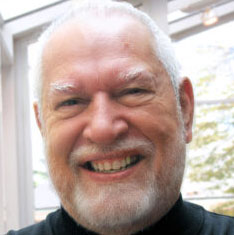In his weekly clinical update, Dr. Griffin discusses monkeypox and chickenpox co-infection in southern Nigeria, vaccine effectiveness against influenza A, SARS-CoV-2 neutralizing antibody titers in maternal blood, umbilical cord blood, and breast milk, COVID-19 rapid antigen tests with self-collected vs health care worker–collected nasal and throat swab specimens, four methods for monitoring SARS-CoV-2 and Influenza A virus activity in schools, efficacy and safety of Baricitinib for the treatment of hospitalized adults with COVID-19, a synbiotic preparation (SIM01) for post-acute COVID-19 syndrome in Hong Kong, consistent absence of cerebrospinal fluid biomarker abnormalities in patients with neurocognitive post-COVID complications, and risk of new-onset long COVID following reinfection with SARS-CoV-2.
From the European Society for Clinical Virology meeting in Milan, Vincent speaks with Eeva Broberg about her career and her work at the European Centre for Disease Prevention and Control.
In his weekly clinical update, Dr. Griffin discusses developmental impairment in children exposed during pregnancy to maternal SARS-COV2, vagus nerve dysfunction in the post-COVID-19 condition, and humoral immunity to an endemic coronavirus is associated with postacute sequelae of COVID-19 in individuals with rheumatic diseases, incidence and burden of long COVID in Africa.
In his weekly clinical update, Dr. Griffin discusses a microbiologist who was harassed during COVID pandemic sues university, use of inactivated poliovirus vaccine for poliovirus outbreak response, safety and immunogenicity of bivalent rsvpref vaccine coadministered with seasonal inactivated influenza vaccine in older adults, coffee as a dietary strategy to prevent SARS-CoV-2 infection, enrollment of pediatric patients in COVID-19 interventional trials, vaccination, immunity, and the changing impact of COVID-19 on infant health, COVID-19 vaccine effectiveness against post- COVID -19 condition among 589722 individuals in Sweden, repeated Omicron exposures override ancestral SARS-CoV-2 immune imprinting, protection conferred by COVID-19 vaccination, prior SARS-CoV-2 infection, or hybrid immunity against Omicron-associated severe outcomes among community-dwelling adults, the Novavax heterologous COVID booster demonstrates lower reactogenicity than mRNA vaccines, T cell responses to SARS-CoV-2 infection and vaccination are elevated in B cell deficiency and reduce risk of severe COVID-19, oral VV116 versus placebo in patients with mild-to-moderate COVID-19 in China, and how COVID-19 convalescent plasma therapy decreases inflammatory cytokines, therapeutic heparin in non-ICU patients hospitalized for COVID-19 in the ACTIV-4a trial.
In his weekly clinical update, Dr. Griffin discusses progress toward measles elimination, risk of severe coronavirus disease 2019 despite vaccination in patients requiring treatment with immune-suppressive drugs, symptoms, viral loads, and rebound among COVID-19 outpatients treated with nirmatrelvir/ritonavir compared to propensity score matched untreated individuals, late administration and corticosteroid usage explain inefficacy in COVID-19 convalescent plasma trial, higher-dose fluvoxamine and time to sustained recovery in outpatients with COVID-19, recombinant C1 inhibitor in the prevention of severe COVID-19, and Epstein-Barr virus reactivation is not causative for post-COVID-19-syndrome in individuals with asymptomatic or mild SARS-CoV-2 disease course.
In his weekly clinical update, Dr. Griffin discusses coverage with selected vaccines and exemption from school vaccine requirements among children in kindergarten, seasonality of endemic COVID-19, mRNA SARS-CoV-2 vaccination before vs during pregnancy and omicron infection among infants, extracting symptoms from free-text responses using ChatGPT among COVID-19 cases in Hong Kong, SARS-CoV-2 virologic rebound with nirmatrelvir–ritonavir therapy, optimization of antiviral therapy in immunocompromised COVID-19 patients, a study to learn about the study medicines (nirmatrelvir plus ritonavir) in people aged 12 years or older with COVID-19 and a compromised immune system, evaluation of the safety profile and therapeutic efficacy of Remdesivir in children with SARS-CoV-2 infection, effect of neutralizing monoclonal antibody treatment on early trajectories of virologic and immunologic biomarkers in patients hospitalized with COVID-19, and SARS-CoV-2 virologic rebound with nirmatrelvir–ritonavir therapy.
TWiV reveals a prediction of the expected endemic seasonality of COVID-19, based on circulation of human coronaviruses, and ecological clearance of vaccine-targeted human papillomaviruses and an increase in circulation of non-targeted virus types.
In his weekly clinical update, Dr. Griffin discusses stress in America 2023, CDC expanding testing of international air traveler samples to include flu, RSV, and other respiratory viruses, missed opportunities for preventing congenital syphilis, intrinsic and effective severity of COVID-19 cases infected with the ancestral strain and omicron BA.2 variant in Hong Kong, T-cell immunity against severe acute respiratory syndrome coronavirus 2 measured by an interferon-γ release assay is strongly associated with patient outcomes in vaccinated persons hospitalized with delta or omicron variants, masks during pandemics caused by respiratory pathogens, behavioral factors and SARS-CoV-2 transmission heterogeneity within a household cohort in Costa Rica, convalescent plasma for Covid-19–induced ARDS in mechanically ventilated patients, and olfactory and gustatory function 3 years after mild COVID-19.
In his weekly clinical update, Dr. Griffin discusses health worker–perceived working conditions and symptoms of poor mental health, Mpox neutralizing antibodies at 6 months from mpox infection or MVA-BN vaccination, newborn and early infant outcomes…
In his weekly clinical update, Dr. Griffin discusses health worker–perceived working conditions and symptoms of poor mental health, Mpox neutralizing antibodies at 6 months from mpox infection or MVA-BN vaccination, newborn and early infant outcomes following maternal COVID-19 vaccination during pregnancy, duration of SARS-CoV-2 culturable virus shedding in children, prescribing outcomes in outpatients treated with nirmatrelvir–ritonavir for COVID-19 in an interdisciplinary community clinic, Nirmatrelvir and molnupiravir and post-COVID-19 condition in older patients, optimal duration of systemic corticosteroids in COVID-19 treatment, association between Guillain-Barré syndrome and COVID-19 infection and vaccination, SARS-CoV-2 infection correlates with male benign prostatic hyperplasia deterioration, Transplanting candidates with COVID-19, and favorable experience of transplant strategy including liver grafts from COVID-19 donors.





